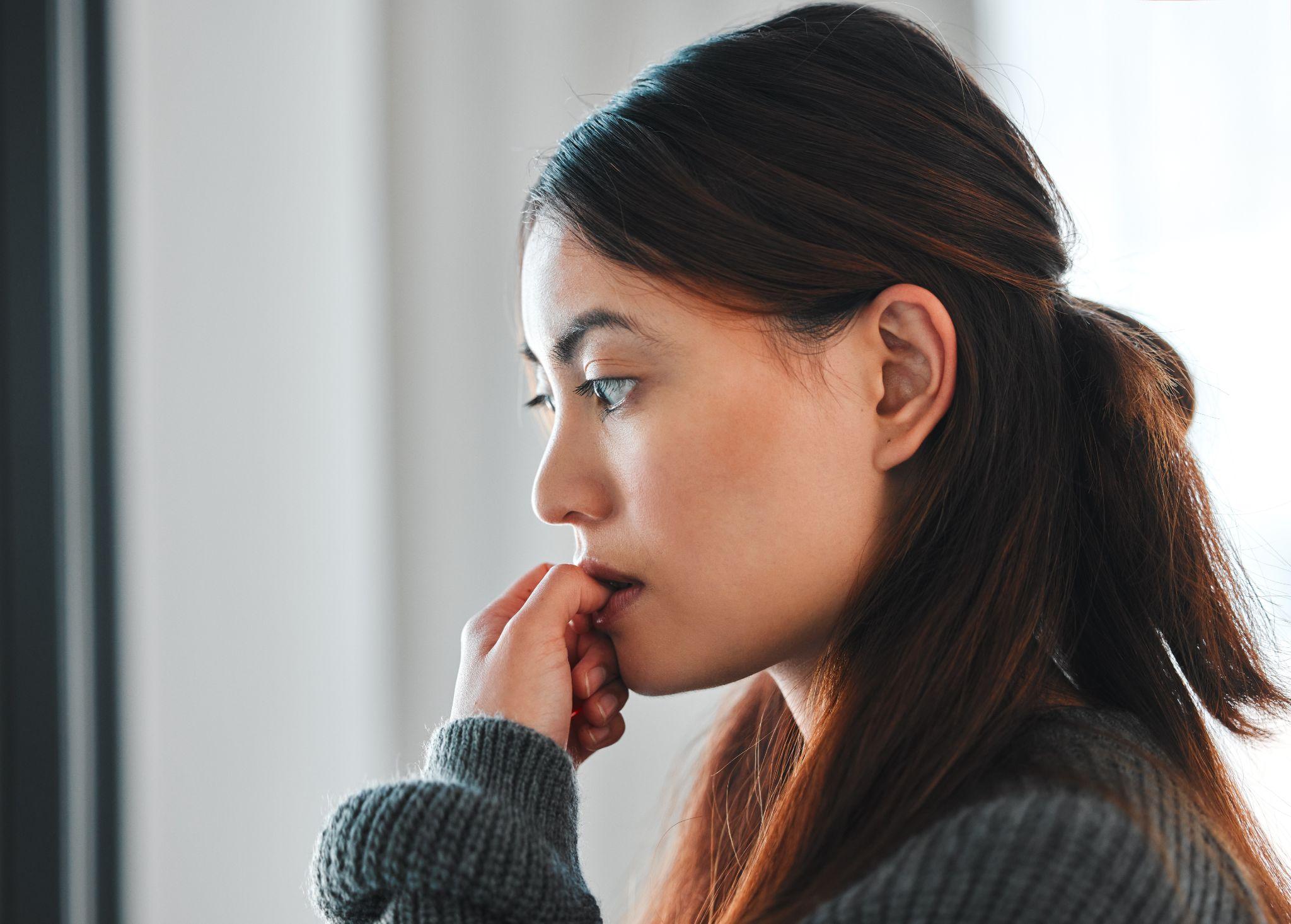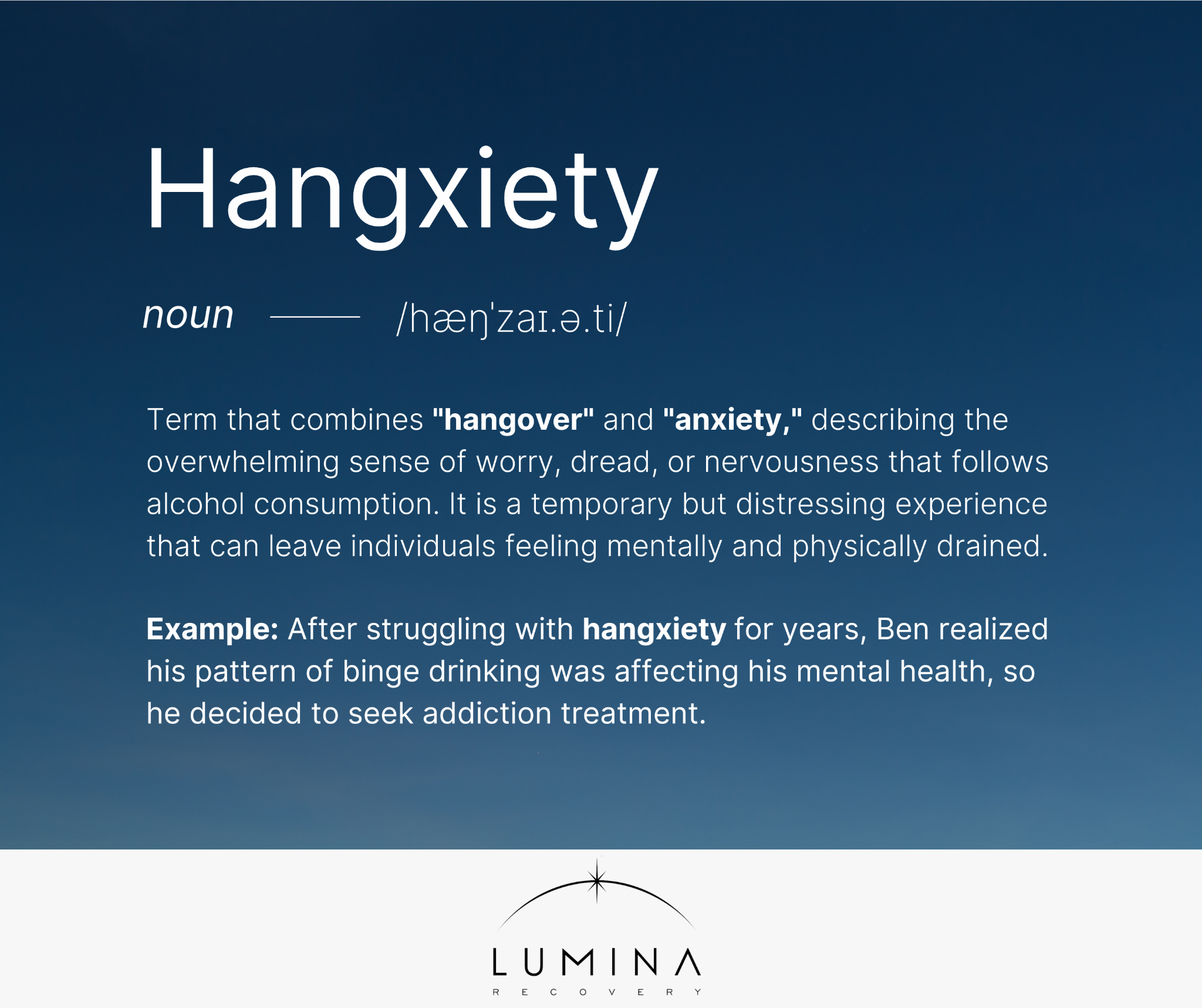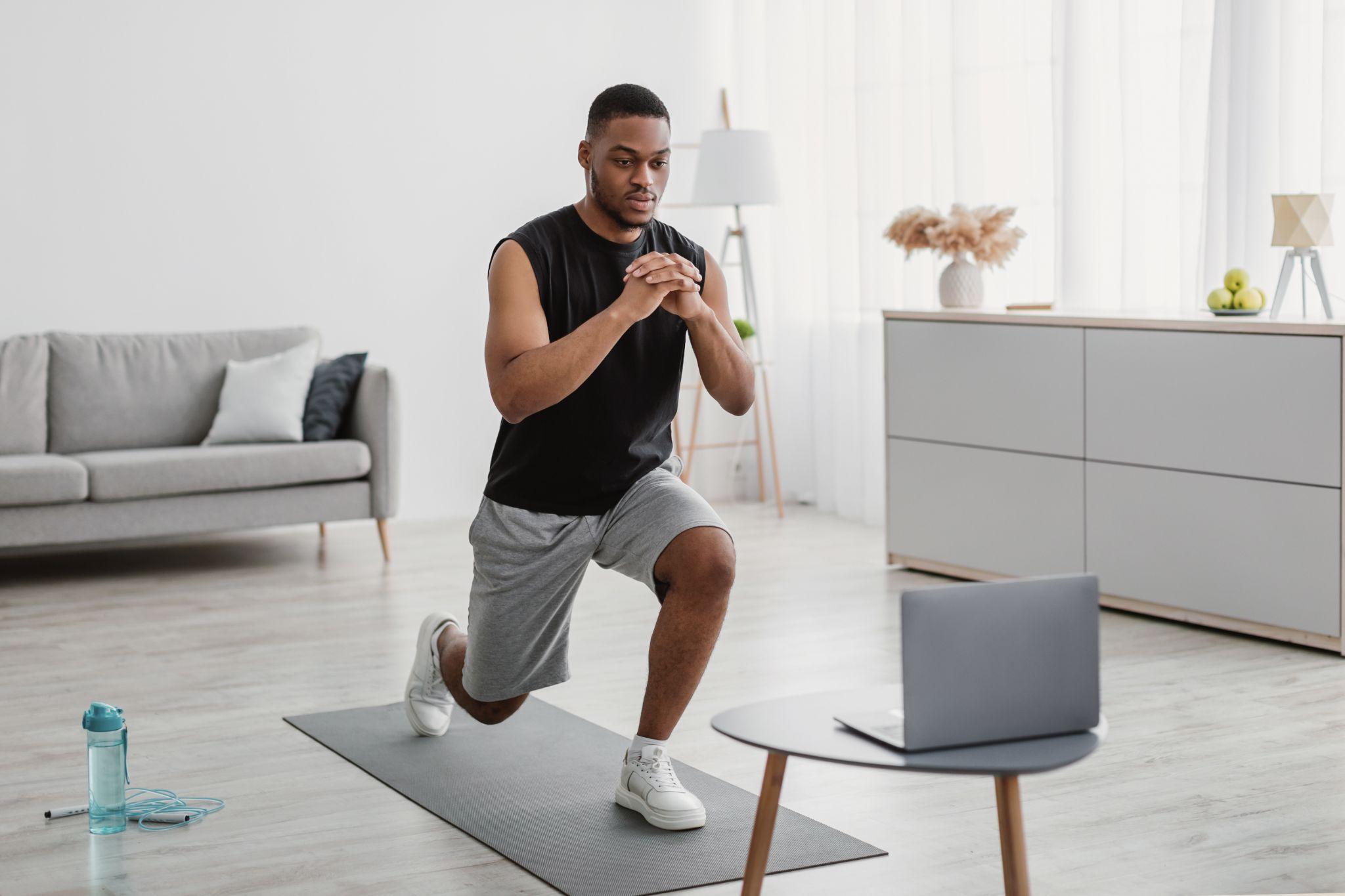Hangxiety refers to the anxious feelings that emerge after drinking alcohol, often alongside classic hangover symptoms. While many are familiar with physical symptoms of a hangover such as headaches and nausea, the psychological effects of alcohol withdrawal often go unnoticed.
Hangover anxiety, or post-drinking anxiety, is common, affecting people who consume alcohol in varying degrees, from mild unease to severe distress. Understanding what causes this phenomenon and how to manage it can help individuals make more informed choices.
What Is Hangxiety?
“Hangxiety” is a term that combines “hangover” and “anxiety,” describing the overwhelming sense of worry, dread, or nervousness that follows alcohol consumption. It is a temporary but distressing experience that can leave individuals feeling mentally and physically drained. It can manifest as:
- Racing thoughts
- Increased heart rate
- Restlessness
- A sense of dread or worry
- Difficulty concentrating
- Feelings of regret or embarrassment
Many people experience this phenomenon due to the effects of alcohol on the brain and body. When alcohol wears off, it can leave individuals feeling anxious and unwell.
Causes of Hangxiety
Hangxiety results from a combination of biochemical, psychological, and physical factors that disrupt the body’s ability to maintain emotional stability after drinking.
Biochemical Factors
Alcohol temporarily boosts gamma-aminobutyric acid (GABA), a neurotransmitter responsible for relaxation, while suppressing glutamate, which promotes brain activity.1
When alcohol wears off, these neurotransmitters rebound, leading to overstimulation, increased anxiety, and restlessness. The disruption of chemical balance in the brain plays a key role in why people experience post-drinking anxiety.1
Psychological Factors
Many individuals use drinking alcohol as a way to cope with social anxiety or stress. However, once the effects of alcohol diminish, they may feel heightened anxiety as their brain attempts to regulate emotions without alcohol’s influence. This creates a vicious cycle in which individuals drink to alleviate anxiety, only to experience more anxiety later.
Physical Factors
- Dehydration: Alcohol is a diuretic, leading to fluid loss that can cause headaches and contribute to increased anxiety.
- Sleep Disturbances: Even small amounts of alcohol disrupt sleep cycles, leading to poor-quality rest and increased stress.
- Blood Sugar Fluctuations: Alcohol affects blood glucose levels, which can result in mood swings, irritability, and heightened anxious feelings.
The Dangers of Hangxiety
Hangxiety can have serious consequences on both mental and physical health. Understanding these risks can help individuals recognize the importance of managing alcohol consumption and prioritizing their well-being.
Mental Health Implications
- Hangxiety can exacerbate existing anxiety disorders, potentially leading to chronic anxiety or panic attacks.
- Repeated exposure to alcohol-induced anxiety may increase vulnerability to depression and long-term emotional instability.
- The link between anxiety and alcohol consumption can reinforce unhealthy coping mechanisms, making it difficult to break the cycle.
Physical Health Risks
- Increased heart rate and blood pressure can put strain on the cardiovascular system, leading to long-term health risks.
- Sleep disruption can contribute to fatigue, irritability, and difficulty focusing throughout the day.
- The stress of repeated hangover anxiety episodes can weaken the immune system over time.
Behavioral Consequences
To avoid hangxiety, some may engage in self-medicating, meaning they drink again to temporarily relieve symptoms, which can create a cycle of dependence.
Binge drinking to avoid the negative effects of alcohol withdrawal can increase the likelihood of developing alcohol use disorder (AUD).
People experiencing frequent hangxiety may develop avoidance behaviors, withdrawing from social situations out of fear of experiencing post-drinking anxiety.
Recognizing the Signs of Hangxiety
Hangxiety can appear in different ways, making it important to recognize the emotional, physical, and cognitive symptoms that may arise after drinking. Identifying these signs early can help individuals take proactive steps to manage their anxiety and make healthier choices regarding alcohol consumption.
Emotional Symptoms
- Feelings of guilt, regret, or paranoia after drinking
- A persistent sense of dread or fear without a clear cause
- Feeling anxious even when there’s no immediate reason for worry
Physical Symptoms
- Sweating
- Trembling
- Restlessness
- Increased heart rate
Cognitive Symptoms
- Difficulty concentrating
- Memory problems
- Racing or intrusive thoughts
Coping Strategies and Prevention
Preventing hangxiety begins before alcohol consumption. Eating a balanced meal rich in protein and healthy fats helps slow alcohol absorption and reduce its impact on the body. Setting limits on alcohol intake and opting for drinks with lower alcohol content can also reduce the risk of experiencing anxiety after drinking.
After drinking, getting enough rest is essential for the body to recover. Hydration plays a crucial role in mitigating symptoms, as drinking water or electrolyte-rich fluids can help restore balance.
Practicing relaxation techniques like mindfulness, deep breathing, or light exercise can also ease post-drinking anxiety and support overall mental well-being. Implementing these strategies can help individuals manage the effects of alcohol and reduce the severity of hangxiety.
When to Seek Professional Help
If hangxiety and feelings of anxiety become a frequent issue and start to affect daily life, it may indicate a problematic drinking pattern.
Some signs of this include drinking to cope with stress or anxiety, feeling compelled to drink despite negative consequences, and an increased tolerance that requires more alcohol to achieve the same effects. Recognizing these signs early may help prevent alcohol dependence from developing.
Therapy and counseling can be highly effective in addressing both anxiety and alcohol use patterns. Cognitive behavioral therapy (CBT) is one of the most commonly used approaches, helping individuals reframe negative thought patterns and develop healthier coping mechanisms.
FAQs
What is hangxiety?
Hangxiety is the experience of anxiety symptoms after alcohol consumption, caused by biochemical, physical, and psychological factors.
How long does hangxiety last?
Symptoms usually peak within 12-24 hours after drinking but can last longer depending on the individual and alcohol intake.1
What percentage of people experience hangxiety?
While research is limited, anecdotal evidence suggests that 12% of drinkers experience anxiety as part of their hangovers.2
What chemical causes hangxiety?
The rebound effect of GABA and glutamate is a primary factor, along with alcohol’s effects on dopamine and serotonin.1
Does ibuprofen help with hangxiety?
While ibuprofen can help with headaches and inflammation, it does not directly relieve anxiety. Hydration, rest, and relaxation techniques can be more effective.
Prioritize Your Well-Being With Lumina Recovery
Hangover anxiety is a common but often overlooked consequence of alcohol consumption, stemming from chemical imbalances, psychological factors, and physical depletion. While occasional hangxiety may not seem alarming, repeated experiences can indicate problematic drinking patterns and negatively impact mental health.
If hangxiety symptoms are interfering with daily life, professional support can make a difference. Lumina Recovery offers dual diagnosis treatment and outpatient programs to address both anxiety and alcohol use. Seeking help can pave the way for a healthier, more balanced lifestyle.
If you’re struggling with alcohol-related anxiety, reach out to Lumina Recovery today for compassionate, professional support.
Sources:
- Alcohol and Drug Foundation. What is hangxiety?.
- Verywell Mind. What “Hangxiety” Is and How to Avoid It.




